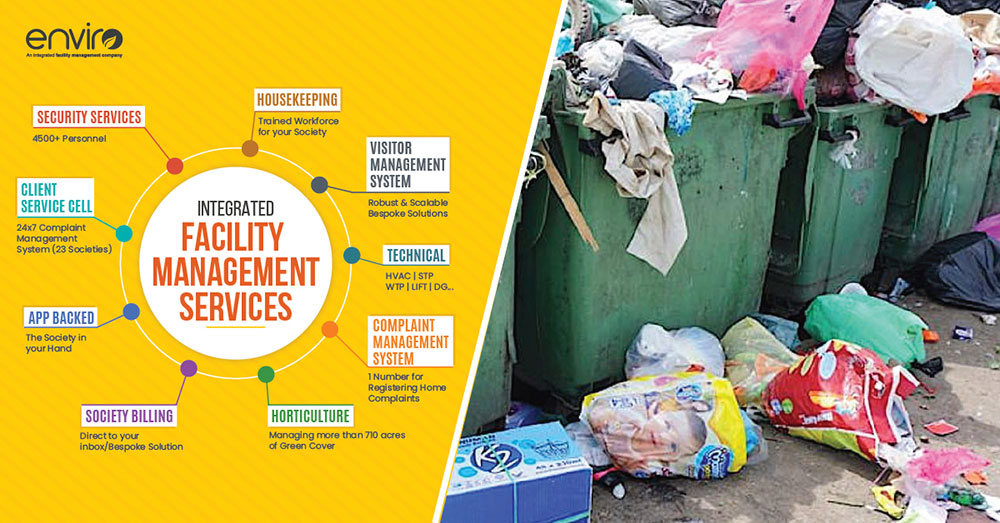Developers offer a plethora of projects in gated communities as well as townships. Both have pros and cons that would differ from varied point of views of developers, investors, and buyers – they are modern, self-sufficient, and fully equipped. No longer are such properties available only to moneyed HNIs and NRIs, and the simple reason why township projects are gaining demand is their affordability to the middle class.
Let us go through the offerings in Facility Management in Townships Vs. Facility Management in Residential Societies.
Facility Management in Township
. Facility Management in Townships is decided by the developer or builder of a particular township itself. As such, every facility in a township is overlooked by the builder’s employees.
. In Integrated Facility Management Services, the vendor provides end to end solutions for all the functionalities within the township which brings out better efficacy and efficiency and reduces backlogs.
. Such integrated facilities management services support all aspects of business operations and site management, including H/K, Security, Technical, Complaint management, Fire, Lift and DG maintenance.
. Facility management in townships encompasses multiple disciplines to ensure functionality, comfort, safety, and efficiency of the built environment by integrating people, place, process and technology.
. The key feature distinguishing a township from a society is that it covers multiple types of properties while a society covers only one specific type of residential building or a cluster of towers comprising a society.
. Townships are generally professionally-managed as they have substantial common areas and services which require better planning and cohesive execution.
. Families in these townships apart from staying in individual condominiums are overall part of a bigger picture which helps them to come together on common issues, organising events at a large scale.
Facility Management in Single Society
. In Societies, all the facilities are managed by different vendors. So, the upkeep of facilities like parking, gardening, and waste management are handled by separate agencies which may lead to non coordination and non cooperation leading to mis management.
. Generally, societies are self-managed by the RWA, which in turn takes CAM from residents to run the facilities. Many residents participate and many don’t. A professional handling is missed in running the daily affairs.
. The upkeep of amenities and AMC are usually neglected when a IFMS partner is not there which results in non functionality of appliances and may lead to an accident as well.
. There are fewer safety measures followed, which may result in unsafe conditions and an increase in the incidence of crime. A lack of robust Visitor Management System make the security vulnerable to trespassing and strangers.
. The upkeep of STP< WTP, DG genset and 24*7 left technician becomes a pain point for the RWA and residents. More so, when one of them goes on leave or quits, replacement takes time, in the mean time residents suffer.
. Horticulture, landscaping and beautification with Facade cleaning and club upkeep will impact the market value of the property and become less desirable to good gentry of residents taking up residences.
Conclusion
Township Management has come a long way and seems to be much more adaptable to the residents who wants to enjoy all the luxuries of city life with the modern and urban settlement without even stepping out. The key aspects of township management are the facilities it provides such as education, healthcare, security, waste management, organized labour etc. This makes life easier with the added benefit of relaxing commute.





 WhatsApp Business +91 88000 09776
WhatsApp Business +91 88000 09776
 CSC
CSC  WhatsApp Business
WhatsApp Business 